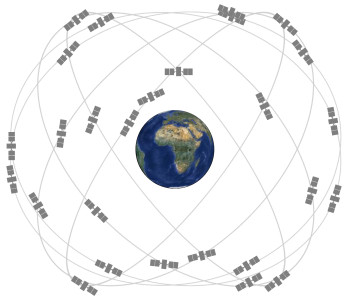While the United States’ GPS system was the first complete navigation constellation in the world and has provided millions of people with location information with increasing levels of accuracy, it is by far the only system available. I write a lot about Galileo and GLONASS–the two more popular GPS alternatives–but there are countless other countries that have their own regional satellites or partially-finished programs as well. And while GPS is still the most widely used system in many parts of the world, it’s a no-brainer that the more satellites a unit can see, the more accurate the positioning will be.
There are a handful of units that utilize both GPS and GLONASS–the only two fully completed worldwide constellations–and the accuracy is greatly improved. Just imagine if Galileo, once completed, was also incorporated. But, while Europe’s constellation isn’t yet complete and cooperation among the various global systems isn’t very high, Inside GNSS reported recently that the US military is currently looking into incorporating signals from international satellite systems for increased accuracy.
“In the future,” said the organization’s new director, Col. Steve Whitney to Inside GNSS, “it’s going to be important that our industry partners and the Directorate investigate ways to pull in these new signals — and that includes some of the non-GPS signals — into our user equipment… I don’t see why we shouldn’t go that way and couldn’t go that way.”
According to the article, the government is considering a more industry-based solution to the new technology that will incorporate multiple constellations instead of a heavy-handed government contract system (which is how GPS satellites and other military equipment is frequently made). The article does stress that this technology will be military-only for the time being and that it is still in the planning progress. However, if there’s one thing that history has taught us, it’s that military technology frequently makes its way over to the civilian sector eventually.
Of course, it should be noted that while the climate is positive, this seems to be in the early partnership stages still. Whether Europe and Russia (or any other country that creates its own global constellation) would be willing to integrate and work with the United States on this project remains to be seen. There is also the challenge of coming up with some sort of open signal receiver that can speak with all of the satellites and translate the information accordingly.
If you’d like to read more information on where the government is right now or more comments from the new GPS Director, head over to Inside GNSS to read their article.

